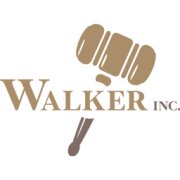Best Commercial Litigation Lawyers in South Africa
Share your needs with us, get contacted by law firms.
Free. Takes 2 min.
Or refine your search by selecting a city:
List of the best lawyers in South Africa
South Africa Commercial Litigation Legal Articles
Browse our 2 legal articles about Commercial Litigation in South Africa written by expert lawyers.
- Enforcing Foreign Commercial Debt Claims in South Africa
- South African courts generally require either a submission to jurisdiction or the attachment of assets to hear a case against a foreign entity. The Hague Service Convention streamlines the legal process by providing a standardized method for serving South African court papers on international defendants. International arbitration is often the... Read more →
- Recover Commercial Debt: Foreign Entities in South Africa
- South African courts generally require an attachment of property to establish jurisdiction over a foreign defendant who has no local presence. The Hague Service Convention streamlines the process of serving legal documents on entities located in member countries, reducing the risk of procedural challenges. International arbitration is often the most... Read more →
About Commercial Litigation Law in South Africa
Commercial litigation in South Africa involves legal disputes that arise out of business and commercial relationships. This field of law covers disagreements over contracts, company law matters, partnership disputes, insolvency, banking, insurance, intellectual property, and other business-related issues. Commercial litigation can take place in the High Court, Magistrates' Courts, or specialised forums such as arbitration panels or tribunals. The aim is to resolve disputes either through negotiation, alternative dispute resolution methods, or by pursuing court proceedings.
Why You May Need a Lawyer
Many individuals and businesses seek commercial litigation lawyers when they face complex or high-value business disputes. Common situations requiring legal assistance include breach of contract claims, shareholder disagreements, partnership dissolutions, debt recovery, business insolvency, professional negligence, and disputes involving sale of goods or services. Engaging a lawyer ensures that your legal rights are protected and increases your chances of obtaining a favourable outcome, whether through settlement or court judgment.
Local Laws Overview
South African commercial litigation is primarily governed by the Companies Act, the Contract Act, the Insolvency Act, and the Uniform Rules of Court for the High Court. Parties are encouraged first to resolve disputes through negotiation or mediation, but if this fails, litigation can be initiated. The courts have the power to enforce contracts, award damages, or impose other remedies. Legal proceedings typically require a documented statement of the claim, defense responses, discovery of evidence, and then trial. Certain commercial disputes may be resolved through arbitration, which is recognized and regulated under the Arbitration Act.
Frequently Asked Questions
What is commercial litigation?
Commercial litigation refers to legal action relating to business disputes such as contract breaches, partnership conflicts, and other commercial disagreements between companies or business people.
Do all commercial disputes end up in court?
Not all commercial disputes go to court. Many are resolved through negotiation, mediation, or arbitration which can be faster and more cost-effective than court proceedings.
What types of disputes are commonly handled in commercial litigation?
Common disputes include breach of contract, shareholder disagreements, business insolvency, debt recovery, professional negligence, intellectual property infringement, and partnership dissolution.
How long does commercial litigation take in South Africa?
Litigation timelines can vary greatly depending on the complexity of the case, the court’s schedule, and whether parties settle early. Cases may last several months to a few years.
Can I recover legal costs if I win my case?
The successful party is usually entitled to recover a portion of legal costs from the losing party, but full reimbursement is not guaranteed. The court will decide on the extent.
What is discovery in commercial litigation?
Discovery is the legal process where parties must share relevant documents and evidence before trial. This ensures transparency and that each side knows the case they must answer.
Is arbitration binding and enforceable in South Africa?
Yes, arbitration decisions are generally binding and can be enforced in South African courts if agreed upon by the parties.
What should I do if I receive a summons?
If served with a summons, it is important to seek legal advice immediately. There are strict deadlines for response and failure to act quickly may result in judgment against you.
How much does commercial litigation cost?
Costs vary depending on the complexity of the case, the court involved, and legal representation fees. Some lawyers offer alternative billing arrangements such as fixed or capped fees.
Can a company represent itself in court?
Although parties are allowed to represent themselves, commercial litigation is complex and it is advisable to consult a lawyer to avoid costly mistakes and to ensure your case is properly presented.
Additional Resources
Valuable resources for commercial litigation in South Africa include the Department of Justice and Constitutional Development, the Law Society of South Africa, and local Bar Councils. Inquiries about company registration, dispute resolution, and court processes can be directed to the Companies and Intellectual Property Commission. Arbitration organizations such as the Arbitration Foundation of Southern Africa and the Association of Arbitrators Southern Africa also provide useful information and services relating to commercial disputes.
Next Steps
If you require legal assistance in a commercial dispute, it is best to consult an attorney who specialises in commercial litigation. Prepare a summary of your dispute and gather all relevant documents before your first meeting. Act promptly since delays can negatively affect your rights and options. You may also explore alternative dispute resolution methods if appropriate. Reaching out to established legal organisations for referrals or guidance can further assist you in finding the right legal support for your case.
Lawzana helps you find the best lawyers and law firms in South Africa through a curated and pre-screened list of qualified legal professionals. Our platform offers rankings and detailed profiles of attorneys and law firms, allowing you to compare based on practice areas, including Commercial Litigation, experience, and client feedback.
Each profile includes a description of the firm's areas of practice, client reviews, team members and partners, year of establishment, spoken languages, office locations, contact information, social media presence, and any published articles or resources. Most firms on our platform speak English and are experienced in both local and international legal matters.
Get a quote from top-rated law firms in South Africa — quickly, securely, and without unnecessary hassle.
Disclaimer:
The information provided on this page is for general informational purposes only and does not constitute legal advice. While we strive to ensure the accuracy and relevance of the content, legal information may change over time, and interpretations of the law can vary. You should always consult with a qualified legal professional for advice specific to your situation.
We disclaim all liability for actions taken or not taken based on the content of this page. If you believe any information is incorrect or outdated, please contact us, and we will review and update it where appropriate.
Browse commercial litigation law firms by city in South Africa
Refine your search by selecting a city.
















